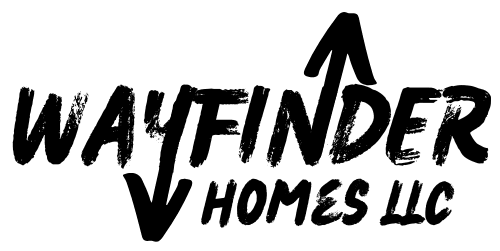With its beautiful beaches, scenic mountains, and vibrant cities, North Carolina has become a hotspot for short-term rental investments. Tourist areas like the Outer Banks, Asheville, and the Triangle region draw millions of visitors each year, making short-term rentals an attractive option for investors looking to capitalize on high visitor demand. But like any real estate investment, owning a short-term rental property in North Carolina comes with its unique benefits and challenges. Here’s a look at what to consider when evaluating potential returns and challenges in the state’s booming tourism market.
Potential Returns of Owning a Short-Term Rental in North Carolina
1. High Demand from Year-Round Tourism
North Carolina offers a unique mix of coastal, mountain, and urban attractions that keep tourists visiting throughout the year. The Outer Banks draws summer beachgoers, while Asheville sees leaf-peepers in the fall, and mountain resorts offer winter ski trips. This year-round tourism provides a steady stream of potential guests, especially in popular spots, allowing you to maintain high occupancy rates across seasons and maximize rental income.
2. Premium Nightly Rates in Peak Seasons
Short-term rentals in North Carolina’s tourist destinations can command high nightly rates, especially during peak seasons. A well-located beach property in the Outer Banks or a cabin in the Blue Ridge Mountains can yield impressive returns during summer and fall. By strategically adjusting rates for peak and off-peak periods, owners can optimize revenue while maintaining competitiveness in their market.
3. Appreciation Potential in Growing Markets
Many of North Carolina’s tourist areas are experiencing property value growth due to increasing demand. Coastal areas, the Asheville region, and cities like Raleigh and Charlotte are seeing steady property appreciation. By investing in these high-demand areas, short-term rental owners can not only generate income but also benefit from long-term property appreciation, adding a second layer of return to their investment.
4. Tax Benefits and Deductions
Owning a short-term rental in North Carolina can provide several tax benefits. You may be able to deduct expenses such as property taxes, maintenance costs, property management fees, and even mortgage interest, depending on how much you use the property personally. However, it’s wise to consult a tax advisor to fully understand what deductions apply and how to structure the property to maximize tax benefits.
Challenges of Owning Short-Term Rentals in North Carolina’s Tourist Areas
1. Seasonal Variability and Cash Flow Fluctuations
While high demand in peak seasons offers the potential for strong returns, off-season occupancy can be much lower. Coastal properties in the Outer Banks, for example, may experience a drop in bookings during winter, while mountain properties see fewer visitors in spring. To maintain cash flow throughout the year, many owners implement marketing strategies to attract off-season travelers, such as targeting remote workers or offering discounts for longer stays.
2. Strict Local Regulations and Permitting Requirements
Several tourist areas in North Carolina have introduced regulations on short-term rentals. Asheville, for example, has specific zoning laws and requires permits for short-term rentals, and many coastal towns impose restrictions to preserve community integrity. Be sure to research local laws in your target area and consult with a local real estate attorney if necessary. Non-compliance can lead to fines or even forced closure of your rental operation, so understanding the regulatory environment is crucial.
3. High Operational Demands and Maintenance Costs
With frequent guest turnover, short-term rental properties typically require more maintenance than long-term rentals. Regular cleaning, upkeep, and the need for quick repairs can add up over time, especially if you aim to maintain a high guest experience. Additionally, beach properties may face salt-related wear and tear, while mountain cabins might require snow removal or wildlife-proofing. Many owners choose to work with property management companies to handle operations, although this will cut into profits.
4. Increased Competition in Popular Markets
As North Carolina’s popularity with tourists and investors grows, some areas have become saturated with short-term rentals. In competitive markets like the Outer Banks or Asheville, it can be challenging to stand out, especially if you’re a new host. Successful short-term rentals in these areas often rely on professional listing photos, competitive pricing, and unique amenities. Consider adding local touches to your property, such as beach gear for coastal rentals or hiking maps and a fire pit for mountain cabins, to attract and retain guests.
Tips for Maximizing ROI on North Carolina Short-Term Rentals
To succeed with short-term rentals in North Carolina’s tourist hotspots, it’s essential to have a well-thought-out strategy. Here are some tips for maximizing your returns:
- Market for the Off-Season: Target groups like remote workers or seasonal visitors to improve occupancy rates during slow periods. Offering long-term discounts or pet-friendly accommodations can also help.
- Invest in High-Quality Furnishings and Décor: In competitive areas, properties with updated, stylish interiors and local touches often receive better reviews and higher occupancy rates. Consider themes or décor that reflect the area’s appeal, such as nautical elements for beach rentals or rustic charm for mountain cabins.
- Optimize Pricing with a Dynamic Pricing Tool: Use dynamic pricing tools to adjust your nightly rate based on demand, local events, and market trends. This approach allows you to capture more revenue during peak periods while remaining competitive in off-peak times.
- Stay Up-to-Date on Local Regulations: Short-term rental laws in North Carolina continue to evolve, especially in high-demand tourist areas. Join local associations, attend city council meetings, or follow real estate news to stay informed about any changes that could affect your property.
Is a North Carolina Short-Term Rental Right for You?
Owning a short-term rental in North Carolina’s tourist areas can be both rewarding and profitable, but it requires careful planning and a proactive approach to management. The state’s diverse landscape provides a variety of options for investors, from beach houses and lake cabins to mountain lodges and urban condos. Each market has unique challenges, such as regulatory restrictions, seasonal demand shifts, and high competition, but with the right strategy, these properties can generate significant income and long-term appreciation.
Before you dive in, take the time to evaluate your financial goals, risk tolerance, and willingness to actively manage a property. If you’re prepared to navigate the seasonal fluctuations and operational demands, investing in a short-term rental in North Carolina’s popular tourist areas could be a fantastic way to build your real estate portfolio while enjoying the benefits of owning a piece of the state’s natural beauty and charm.



